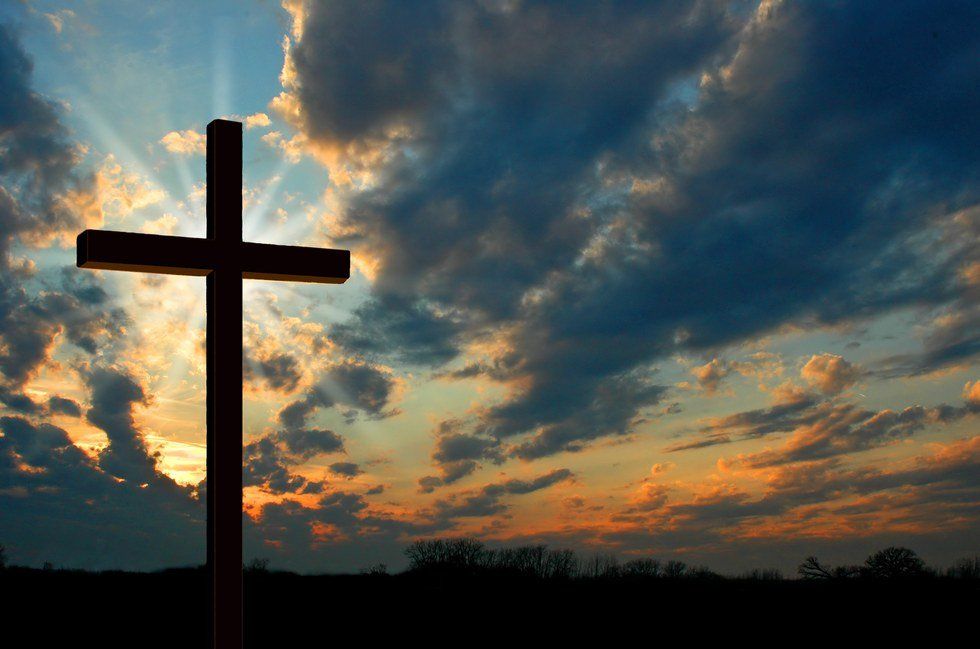Have you ever had a moment where you removed yourself from a situation? Where you stepped out of yourself to look around and see the reality?
Well, that was me on a warm July evening a few years back, the South’s unrelenting humidity breathing down. Acoustic guitars echo songs of worship through the back of an old school auditorium. After looking around, I remember clarity and I remember a profound sense of spiritual fatigue.
That was when I realized that I didn't think I was a Christian. Or at least in the way that I thought that meant.
Let’s flash back two days from that summers night, shall we?
A friend and I are set up at a table eating lunch and debating a doubtlessly trivial fact and are greeted by two girls who we had met a few days previous through our Christian mission group. The girls sit down and make small talk until one of them drops this piece of breaking news: marriage equality is now legal in all 50 states. I look up to gauge reactions. My friend has nodded and continued eating and the other girl has folded her hand to a fist and started to mutter louder and louder “no no no no no” while literally hitting herself in the face in disbelief.
You’re starting to get the picture, right? I saw the church exclude people, friends and family, with archaic, views of social issues that I couldn’t bare fall in line with. I saw the church outright reject other schools of thought that clearly were on the same page as them. All those things and so on and so forth, yes. But to be honest, I had checked out years before. I wish that there was a moment that I could point to for that, but I think it was more chronic.
I had been in the church my entire life, from Sunday school to the big leagues- the Sunday morning sermon. For myself and many of my peers we were there because our parents were there. It’s what the family did every Sunday.
And somewhere along the road, I can’t pinpoint when, the church stopped being about the beauty of what is and started to be about what you can’t do. God was concerned with whether or not you say fuck or if you masturbated rather than about community and sacrifice. I literally started hearing sermons deliberate on the logistics of how many miles it is from Nazareth to Bethlehem and the weather patterns that could have ensued. Ugh.
By the time of my rescission I was ready to reject, to leave. And I did. I started taking Sunday shifts at work. Or better yet- sleeping.
Now earlier this summer my brother Troy, who is a pastor himself, gave a speech. Being his brother and generally a fan of great speakers I went. What I heard that night was a challenging speech about Roman centurions and slavery. He talked about religious tribalism, about polarization and ultimately the inclusion and expansiveness in his faith.
Later, more recently, I rediscovered an interview. Pete Holmes, comedian and host of the podcast “You Made it Weird” was talking to pastor and author Rob Bell. Rob was so full of hope and optimism, while also embracing of doubt and solidarity. It was astounding. All of a sudden, thanks to people like Troy and Rob, Christianity, this indoctrinating antiquated system, was becoming relevant again, both spiritually and culturally. I was reminded of the things that made the church revolutionary in the first place. I couldn’t help but to remember all of the potential that lies within that faith.
As I look at myself now, a 20-year-old jaded college student, I still don’t think I would call myself a Christian. But by leaving, by rejecting and starting to become open to coming back in some capacity, I feel another sort of clarity. Like Rob Bell says in the interview “The way that we grow, the way we become better people is through disruptions.” I feel like I can begin to mine it for its practical uses in my own life without the tangling dogma.
I don’t want this thing that was so influential on me to leave such a bad taste in my mouth. Not when I have evidence, whether it be Troy, Rob Bell or any number of phenomenal people of faith that I have known. Evidence of its unbridled compassion and modern pertinence.
So, In what terms if any will I embrace it? I don’t know. But I think more than anything, I’m writing this to start to reclaim it.




















